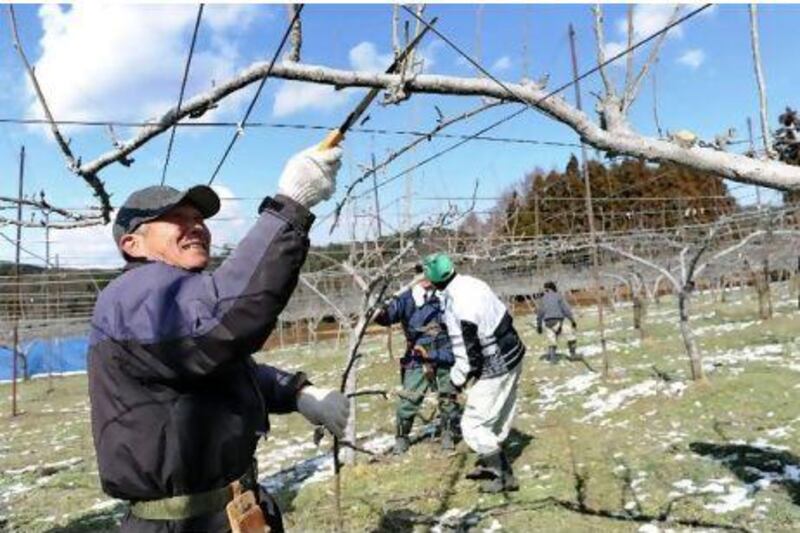BEIJING // Radioactive iodine has been detected in seawater at concentrations of 3,355 times the legal limit near the Fukushima nuclear plant, although the record levels do not present immediate health risks, according to the country's nuclear safety agency.
The levels, measured on Tuesday afternoon, almost three weeks after a March 11 earthquake and tsunami, follow repeated cases of contaminated water leaking into buildings in the plant.
Hidehiko Nishiyama, a spokesman for Japan's Nuclear and Industrial Safety Agency, said the health of people was not at risk as iodine would be "significantly diluted" by the time it was consumed as seafood. Also, the radioactivity of the form of iodine reduces by half every eight days and no fishing is allowed within 20 kilometres of the plant.
The Japanese government's chief spokesman, Yukio Edano, yesterday said the radioactive water found at the plant, some believed to be coming from reactor cores, might be transferred to a tanker at sea.
He said the reactor buildings destroyed by hydrogen explosions could be covered by sheets to reduce the spread of radioactive particles and that water containing coating agents is due to be sprayed at the plant from today to limit the release of contaminated dust.
About 300 people, mostly employees of the plant's operator, Tokyo Electric Power Company (Tepco), are trying to reactivate reactor cooling systems disabled by the tsunami.
The Fukushima plant is likely to be scrapped completely. Tepco yesterday said reactors No1 to No4 would have to be decommissioned because of damage. Later in the day, Mr Edano, the government spokesman, said No5 and No6, both stabilised, would likely not be used again.
"I believe it is very clear from the viewpoint of society. That is my perception," Mr Edano said.
Tepco announced yesterday that its president, Masataka Shimuzu, 66, had been taken to hospital this week suffering from high blood pressure and dizziness as the crisis for the company continued.
Once the emergency has been dealt with, "it's going to take some considerable time, probably years rather than months", to deal with the contamination and remove the spent fuel, Laurence Williams, a professor of nuclear safety at the University of Central Lancashire in Britain, said by telephone.
Decontamination techniques and technology to deal with the spent fuel are available, he said, but "it will take some time to do that".
The Japanese authorities are testing soil samples from districts surrounding the plant to determine if crops can be grown there. Radiation leaking from the plant has seeped into the soil nearby and made its way into produce, raw milk and even tap water as far as Tokyo, 240 kilometres to the south. Several countries have banned imports of fruit, vegetables and dairy products from Fukushima prefecture and neighbouring districts over contamination worries.
The death toll from the earthquake and tsunami has reached 11,360 although this is expected to increase by many thousands.
[ dbardsley@thenational.ae ]
* With additional reporting from The Associated Press






